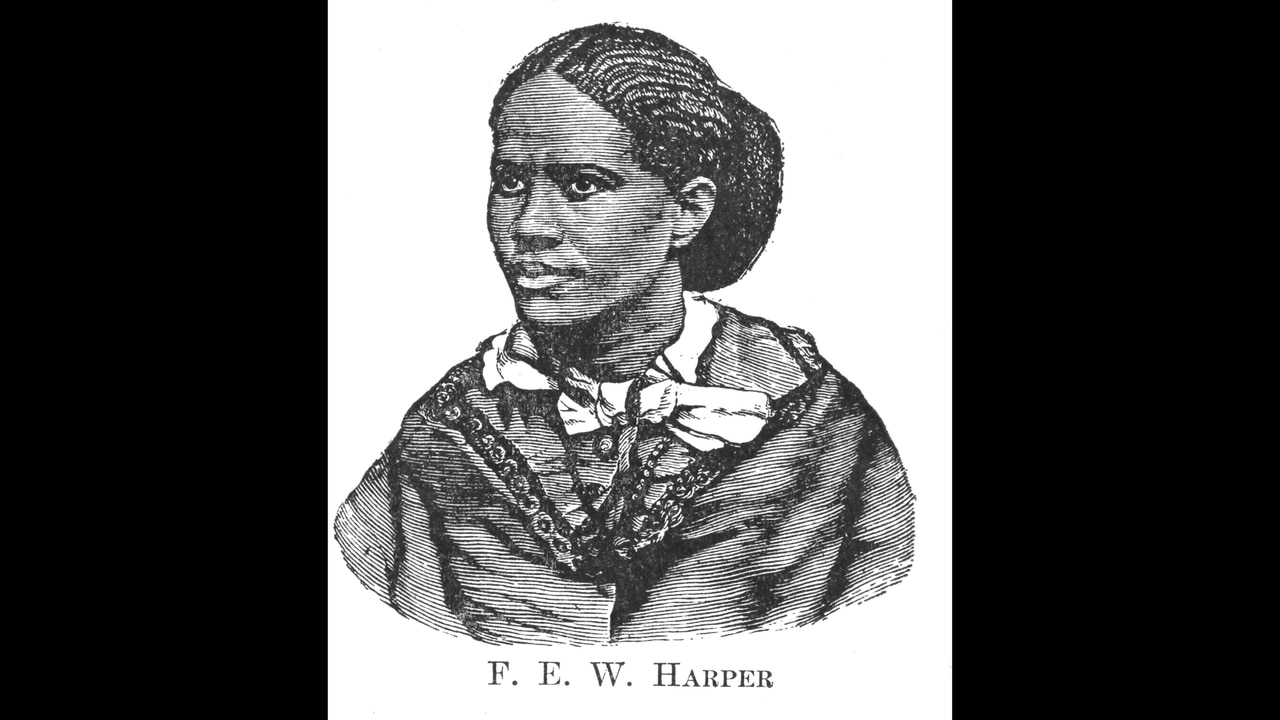Our Mothersâ Gardens: 5 Powerful Black Feminists You Should Know
Black Feminists saved me. They gave me a name for so many of my experiences from childhood up until this very moment. “Feminist” was not a word I heard until I got to college and a whole new world opened up for me. I was learning about the insidious nature of sexism in this country, and beginning to see how it has impacted my own life experiences. However, something began to feel incomplete — that is, I learned the hard way that the “white” is often silent in feminism. It was not until I was introduced to the work of folks like Alice Walker, Patricia Hill Collins and Audre Lorde, that I really began to feel affirmed in my experiences. Unlike the aforementioned, not all notable Black feminist leaders make the mainstream lists, so today I want to honor a few other Black feminist ancestors you should know.
Frances Ellen Watkins Harper (1825-1911)
Illustration portrait of American author, abolitionist, and suffragist Frances Ellen Watkins Harper (1825 – 1911), 1872.
Born in Baltimore, Maryland to free African American parents, Frances Ellen Watkins Harper was a prominent Black figure in the nineteenth century. As a poet and writer Harper became the first African American woman to publish a short story. Harper was also an abolitionist, suffragist and civil rights activist, and co-founded the National Association of Colored Women’s Clubs. Much of her work focused on addressing the double burden of racism and sexism that Black women face. In 1866, she gave a speech entitled, “We Are All Bound Up Together,” at the National Woman’s Rights Convention urging for the inclusion of African American women in the Suffrage Movement. In the years to come, Harper continued advocating for equal rights and opportunities for Black women.
Florynce Kennedy (1916-2000)
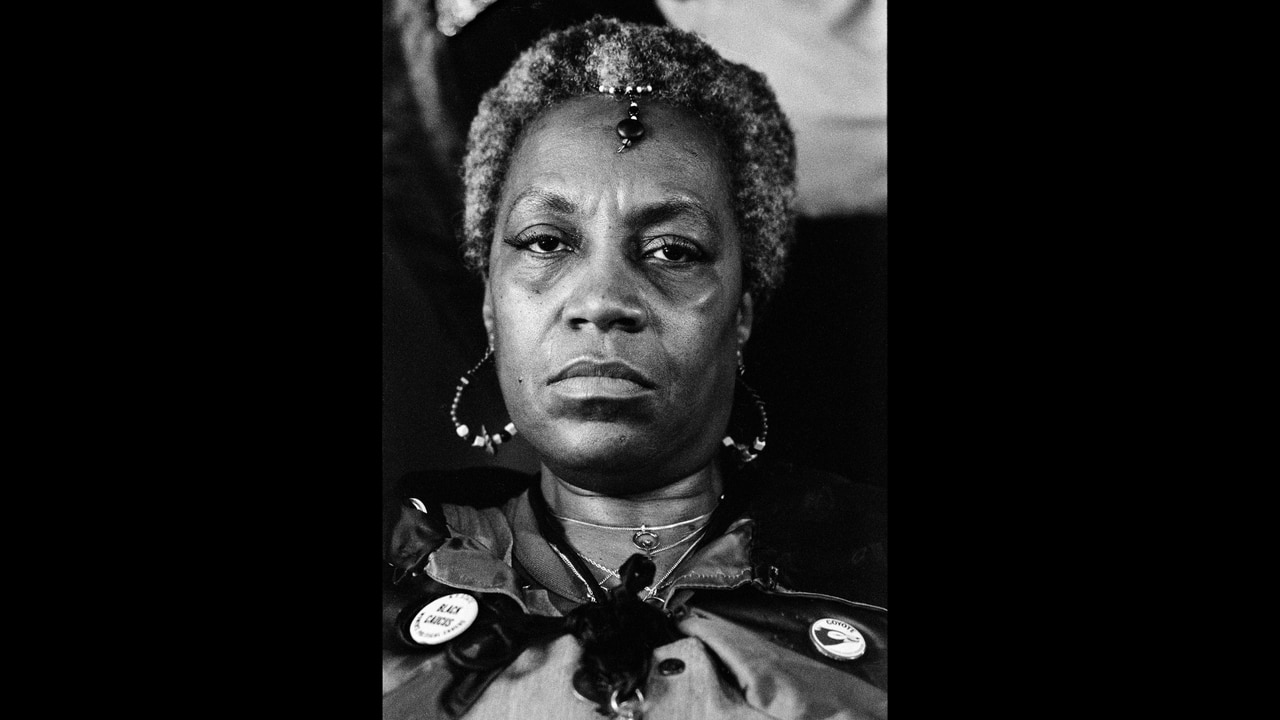
Florynce ‘Flo’ Kennedy (1916 – 2000) at the ‘Coyote’ convention, Washington DC, 1976.
A fiercely outspoken activist and radical feminist known for her cowboy hat, pink sunglasses , Florynce Kennedy advocated for the rights of all oppressed people including Black and Indigenous folks, women, gay people, incarcerated folks and sex workers. Her stance was rooted in using an intersectional framework to address the needs of marginalized people.
Originally from Kansas City, Kennedy moved to New York and studied pre-law at Columbia University. After graduating, she applied and was initially rejected from Columbia Law School. Kennedy pushed back, calling the school out for their discrimination causing Columbia to ultimately reverse the decision. As a lawyer, she represented H. Rap Brown, Assata Shakur and the Black Panthers. In the 70s, she founded the Feminist Party and co-founded the National Black Feminist Organization. Kennedy spent her life being unapologetic about who she was: “I never stop to wonder why I’m not like other people. The mystery to me is why more people aren’t like me.”
Margaret Sloan-Hunter (1947-2004)
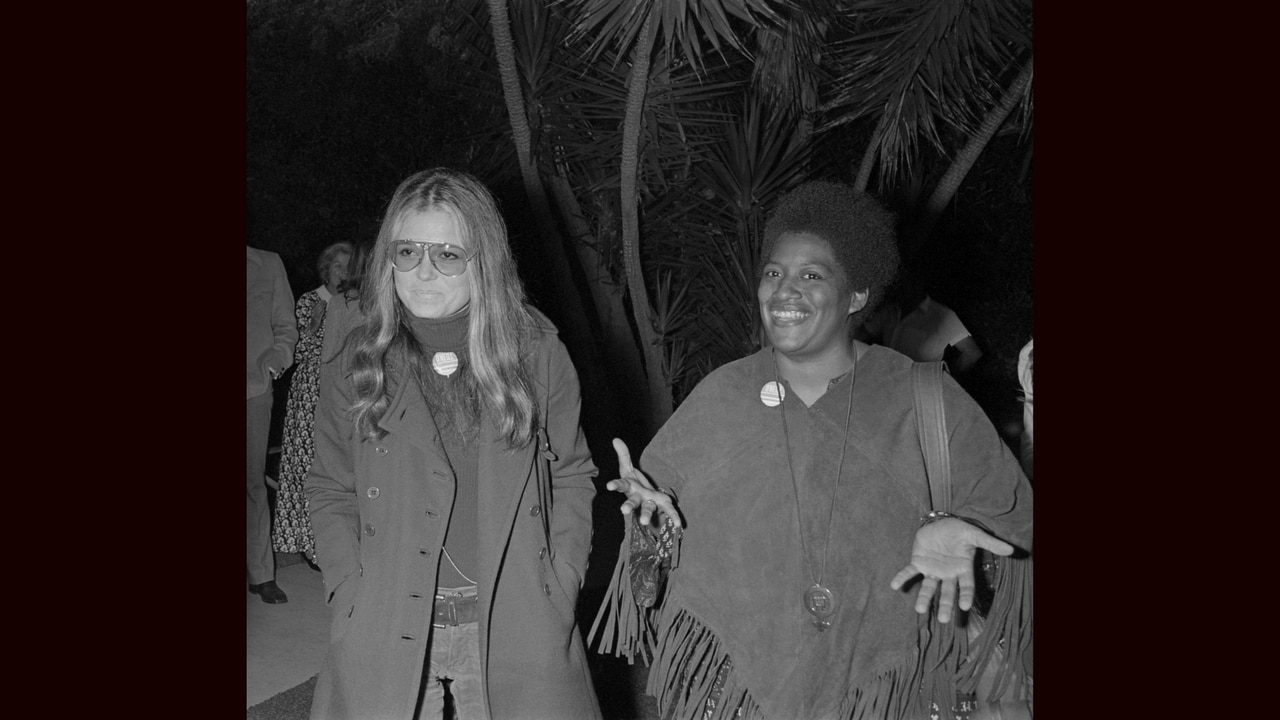
Margaret Sloan-Hunter (left) at a fundraiser and rally for California State Senate candidate Catherine O’Neill, October 15, 1972 in Los Angeles, California.
Born in Tennessee and raised in Chicago, Margaret Sloan-Hunter became involved in activist work at a fairly young age. At just 14 years old, Sloan-Hunter joined the Congress of Racial Equality (CORE) and by 18 she founded the Junior Catholic Inter-Racial Council, a coalition of students focused on addressing racial issues. She eventually became one of the first editors of Ms., a feminist magazine. Sloan-Hunter was also involved in the founding of the National Black Feminist organization. After moving to Oakland, California in 1975, she and her daughter established the Women’s Foundation. As a Black lesbian feminist and activist, she championed the importance of intersectionality when fighting for racial equality.
Brenda Eichelberger (1939-2017)
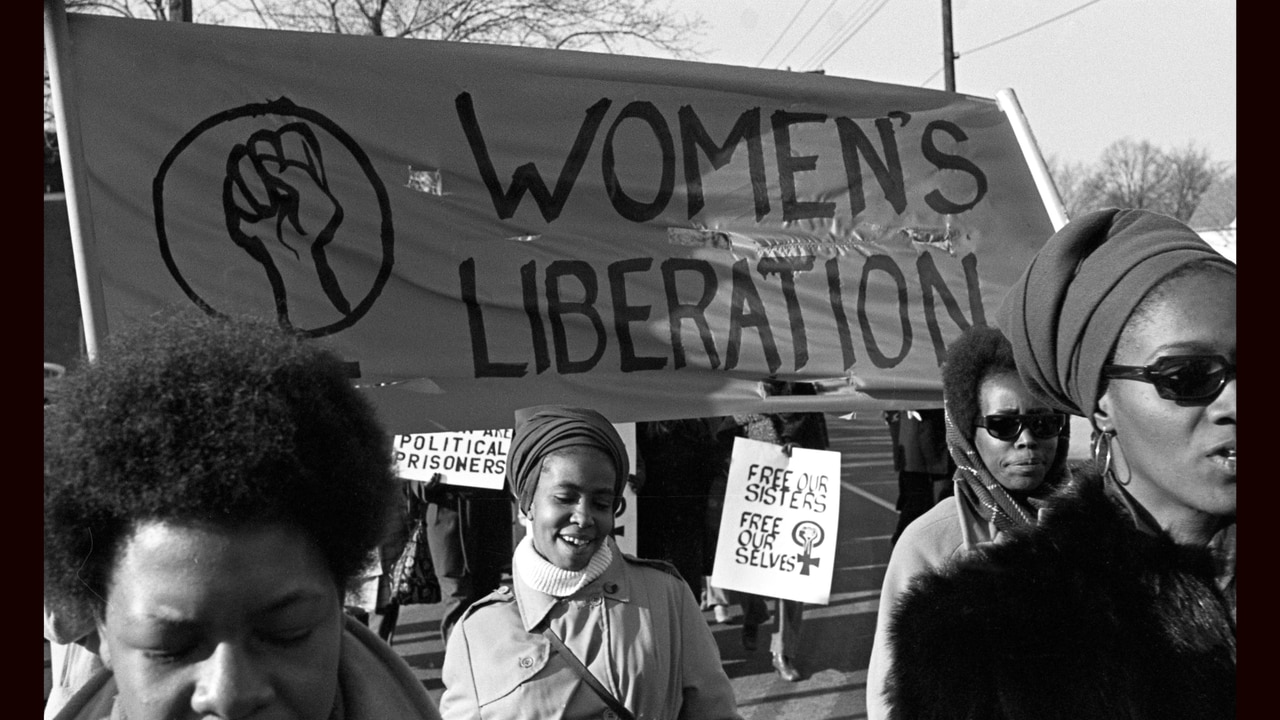
A group of women, under a ‘Women’s Liberation’ banner, march in support of the Black Panther Party, New Haven, Connecticut, November 1969.
A Washington, D.C. native, Brenda Eichelberger is a writer, educator, therapist and activist. After high school, she attended District of Columbia Teachers College. She would eventually go on to work as a teacher and counselor in Chicago. In 1974, she co-founded the National Black Feminists Organization, serving as president of the Chicago chapter. After the organization disbanded in 1975, she founded the National Alliance of Black Feminists. The alliance focused on promoting positive images of Black women in the media and addressing the intersectional needs of Black women. In 1977, Eichelberger published the survey, Voices on Black Feminism, to shed light on Black women’s reluctance in being a part of the feminist movement and the necessity of then establishing a Black Feminist framework.
Dorothy Pitman Hughes (1938-2022)
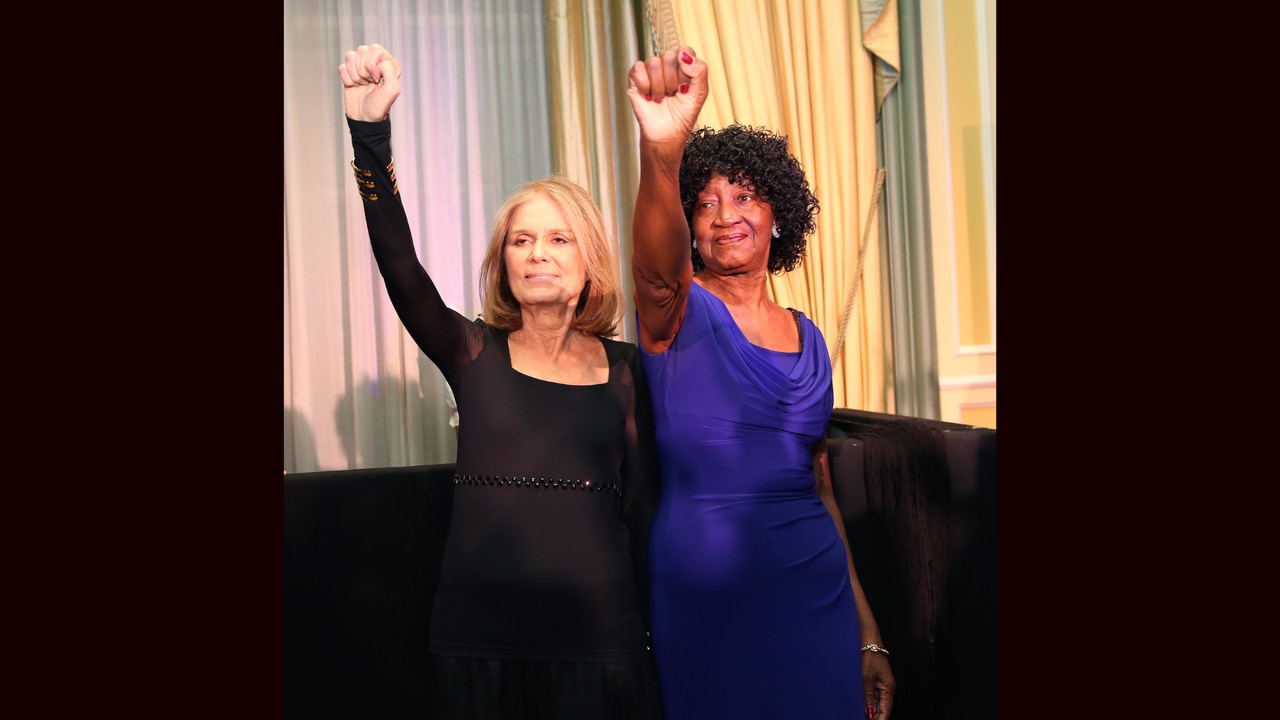
NEW YORK, NY – APRIL 27: Gloria Steinem (left) and Dorothy Pitman Hughes (right) attend Ms. Foundation For Women 2016 Gloria Awards Gala at The Pierre Hotel on April 27, 2016.
Best known for her iconic photo to signify the importance of interracial solidarity among feminists, Dorothy Pitman Hughes was a leading child welfare advocate and activist from Lumpkin, Georgia. After moving to New York City at 19 years old, she became involved with raising bail funds for civil rights protestors. In the 60s, Hughes organized a multiracial cooperative day care center which was profiled in New York Magazine by her close friend Gloria Steinem. Alongside Steinem, she co-founded the Women’s Action Alliance.
Pitman was passionate about supporting women and children, organizing the first shelter for battered women in New York City and co-founding the NYC Agency for Child Development. In addition to her advocacy work, Pitman was an entrepreneur, becoming the first African American woman to own an office supply center and be a member of Stationers Association of New York. In her book, Wake Up and Smell the Dollars!, she discusses her experiences and encourages small business ownership among African Americans.
